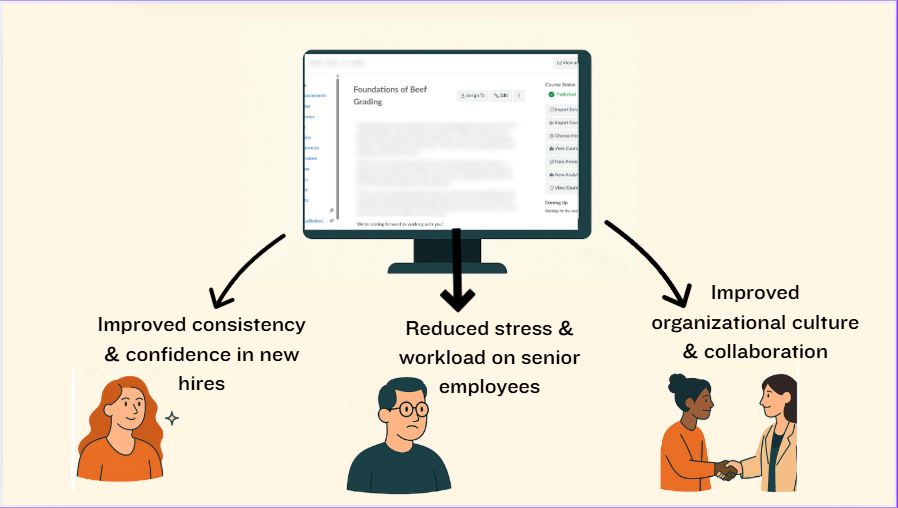Case Study: LMS Rollout
Background
An organization faced inconsistent onboarding across multiple field locations, especially for new hires. Senior employees were often stretched thin trying to train new staff informally, leading to burnout, delayed productivity, and variable performance among trainees. There was no centralized platform for training materials, process updates, or mentorship.
Challenge
To create a consistent, scalable, and engaging learning experience for new hires, while relieving pressure on experienced graders and fostering a more collaborative organizational culture.
Approach
I led the design and implementation of a Learning Management System (LMS), utilizing Canvas to build a structured onboarding and training program. My process included:
Conducting a needs assessment to gather input from senior employees, supervisors, and new hires
Mapping existing training gaps and aligning content with learning outcomes using ADDIE and SAM design models
Developing multimedia-rich modules, including videos, job aids, quizzes, and simulations that reflected real field conditions
Integrating adult learning theory to ensure relevance and retention
Setting up role-based access and tracking features for performance monitoring
Creating a mentorship program within the LMS to pair new hires with experienced team members for guided support
Ensuring materials aligned with SOPs and field realities while prioritizing confidentiality and security of shared content
Solutions Implemented
A structured onboarding course accessible via Canvas and SharePoint
Clear progression paths and embedded assessments
“Ask a Mentor” LMS feature and a formalized mentorship track
Centralized library of updated training resources and SOPs
Streamlined feedback loop for continual updates and user input
Results
100% of new hires completed onboarding through the LMS within their first 90 days
82% reported feeling more confident in their roles after completing training
Consistency across regions increased, with fewer errors and re-training events
The mentorship program boosted cross-team engagement and contributed to a measurable improvement in organizational morale and communication
